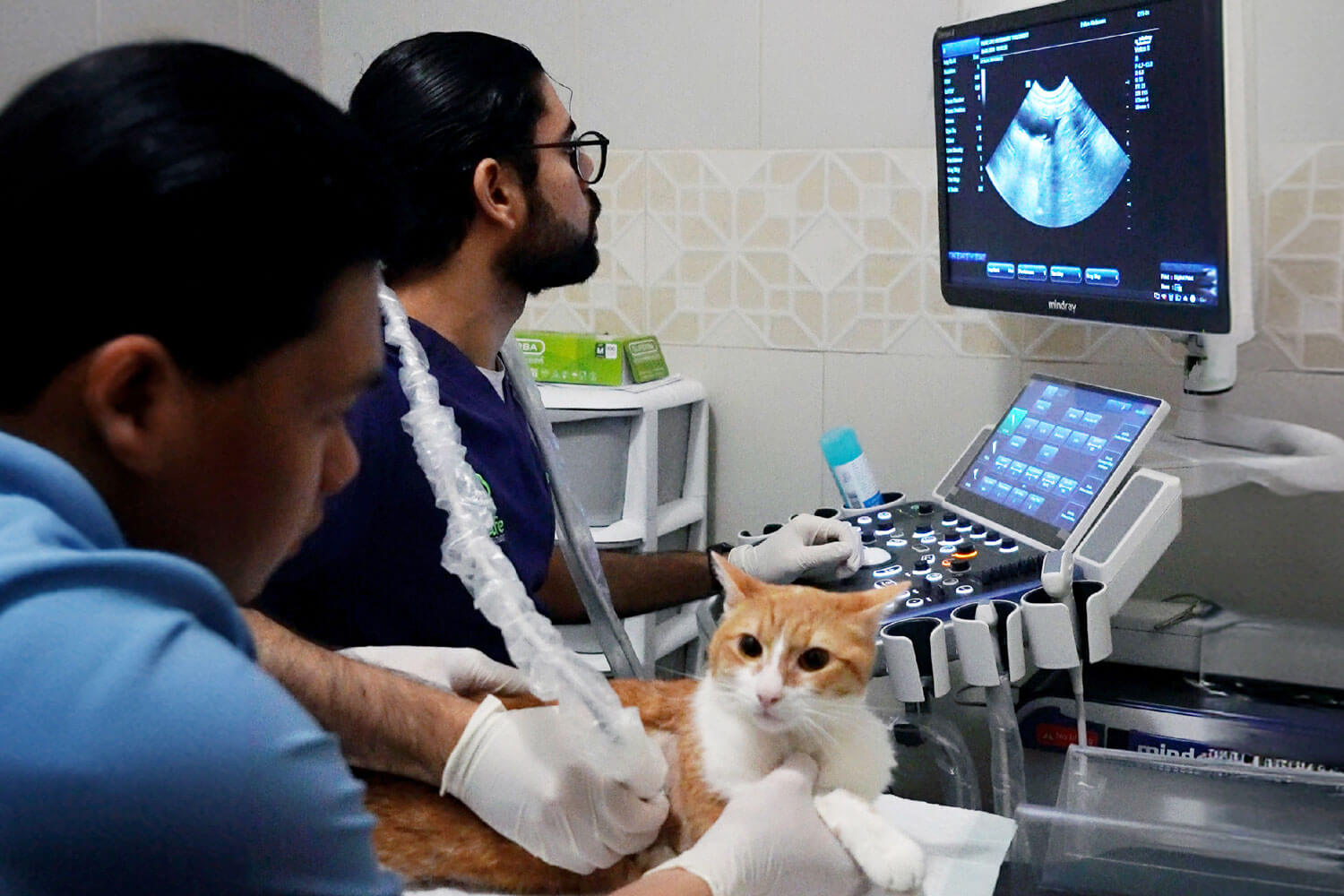Services
Contact
Don’t hesitate to Contact us
02 444 3002
Abu Dhabi
04 272 3442
Dubai

Veterinary Imaging
Pure Life Veterinarian Treatment, where we provide advanced veterinary care using cutting-edge technology. One of our key diagnostic tools is veterinary imaging, which plays a crucial role in helping us accurately diagnose and treat our patients.
Veterinary imaging encompasses various imaging techniques, such as X-RAY and ultrasound, to visualize the internal structures of animals. These images allow us to assess bones, muscles, organs, and other tissues, providing valuable information for diagnosis and treatment planning.
FAQ
Pet hospitals typically offer a wide range of services, including routine check-ups, vaccinations, surgeries, dental care, diagnostic testing (such as X-rays and blood work), emergency care, grooming, and boarding. Some pet hospitals may also provide specialty services like orthopedic surgery, oncology, and physical therapy.
While regular veterinarians can handle many routine issues and preventive care, you should consider taking your pet to a hospital if they experience a medical emergency, such as trauma, difficulty breathing, sudden collapse, severe vomiting or diarrhea, ingestion of a toxic substance, or any other life-threatening condition. Pet hospitals are equipped to handle urgent situations and often have staff available 24/7 for emergencies.
When selecting a pet hospital, consider factors such as location, hours of operation, available services, reputation, qualifications and experience of the veterinary staff, cleanliness and quality of facilities, and cost. You may also want to ask for recommendations from friends, family, or your regular veterinarian, and visit the hospital beforehand to get a sense of the environment.
During a visit to the pet hospital, your pet will typically be examined by a veterinarian, who will discuss any concerns or symptoms you have noticed and may recommend diagnostic tests or treatment options. Depending on the reason for the visit, your pet may receive vaccinations, medications, or other interventions. You'll have the opportunity to ask questions and discuss any necessary follow-up care. In the case of emergencies, treatment may begin immediately to stabilize your pet's condition.

